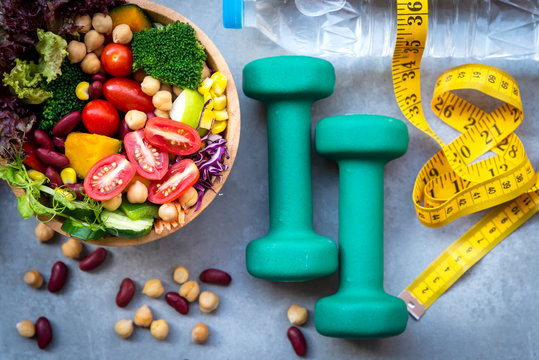
Achieving fitness and weight loss goals is a journey that requires a combination of consistency, dedication, and the right strategies. Whether you are starting your best fitness blog or looking to take your results to the next level, understanding key principles of exercise, nutrition, and mental wellbeing can help you create a balanced approach that is both effective and sustainable. In this article, we’ll explore some of the best tips and strategies to unlock your best fitness potential and achieve lasting weight loss success.
Set Realistic and Achievable Goals
The first step toward success is setting clear, achievable goals. Whether your aim is to lose a specific amount of weight, build muscle, or improve your endurance, setting small, measurable milestones can keep you motivated. Avoid focusing solely on the scale—track other metrics such as energy levels, sleep quality, strength gains, and overall well-being. Remember, fitness and weight loss are long-term commitments, and progress may look different for each individual.
Create a Balanced Workout Routine
A balanced workout routine should include both cardio and strength training. Here’s why:
Cardio: Cardiovascular exercises, such as running, cycling, or swimming, help burn calories, improve heart health, and increase endurance. Aim for at least 150 minutes of moderate-intensity cardio per week to promote fat loss and improve overall fitness.
Strength Training: Building lean muscle mass through weightlifting or bodyweight exercises (like squats, lunges, and push-ups) helps boost metabolism and supports fat loss. As you gain muscle, your body burns more calories at rest, helping you maintain a healthy weight in the long run. Aim for at least two strength training sessions per week.
Incorporating a mix of both types of exercise not only helps with weight loss but also enhances your strength, flexibility, and overall fitness.
Focus on Nutrition: Fuel Your Body Right
The role of nutrition in fitness and weight loss cannot be overstated. To lose weight, you must create a calorie deficit, but it’s equally important to fuel your body with nutrient-dense foods to support your workouts and overall health.
Eat Whole, Unprocessed Foods: Focus on whole foods like fruits, vegetables, lean proteins (chicken, turkey, fish, tofu), healthy fats (avocado, nuts, olive oil), and whole grains (quinoa, brown rice, oats). These foods provide essential vitamins, minerals, and fiber while helping to keep you full longer.
Watch Your Portions: Even healthy foods can contribute to weight gain if consumed in excess. Pay attention to portion sizes and avoid overeating, especially with calorie-dense foods like nuts, seeds, and oils.
Stay Hydrated: Water plays a vital role in digestion, metabolism, and energy levels. Aim to drink at least 8 cups (64 ounces) of water per day, and more if you’re active.
Plan Your Meals: Meal prepping can save you time and help you avoid unhealthy food choices. Plan balanced meals and snacks in advance to keep you on track with your goals.
Prioritize Sleep and Recovery
Fitness is not just about working out hard every day. Recovery is an essential part of the process that allows your body to rebuild and improve. This is especially true when it comes to weight loss, as sleep plays a crucial role in regulating hormones that control hunger and appetite.
Aim for 7-9 Hours of Sleep: Sleep is critical for muscle recovery, energy levels, and hormone balance. Lack of sleep can lead to increased hunger, poor food choices, and reduced motivation to exercise.
Active Recovery: Incorporate low-intensity activities like walking, yoga, or stretching on rest days to promote blood flow and reduce muscle soreness.
Stay Consistent and Be Patient
Sustainable fitness and weight loss results are a result of consistency. Results may not come overnight, but small, consistent changes add up over time. Remember, there will be ups and downs along the way—don’t be discouraged by temporary setbacks. Focus on making progress, not perfection.
Key Tips for Staying Consistent:
Track Your Progress: Keep a fitness journal or use apps to track workouts, meals, and how you’re feeling physically and mentally.
Find a Workout You Enjoy: The best fitness routine is the one you will stick with. Choose activities you enjoy so that working out feels like fun, not a chore.
Join a Supportive Community: Whether it’s a workout group, online community, or a fitness buddy, having support can keep you motivated.
Address the Mental Aspect of Fitness
Achieving your fitness and weight loss goals is as much about mindset as it is about physical effort. Building a positive relationship with your body and with food is essential for long-term success.
Practice Self-Love: Appreciate the progress you’ve made, regardless of how small it may seem. Celebrate your victories and don’t focus solely on the number on the scale.
Avoid Extreme Dieting: Restrictive diets often lead to short-term results followed by eventual weight regain. Aim for a balanced, flexible approach to eating that you can maintain long term.
Manage Stress: High stress levels can hinder weight loss by increasing cortisol levels, which can lead to cravings and emotional eating. Practice stress management techniques such as meditation, breathing exercises, or journaling.
Embrace the Process
Finally, remember that fitness and weight loss tips are journeys, not destinations. While it’s easy to get caught up in the end goal, embracing the process itself will help you stay motivated and appreciate the changes that happen along the way. Focus on how strong, healthy, and energized you feel rather than just how you look or what the scale says.
By following these key principles—setting realistic goals, balancing your workouts, eating nourishing foods, prioritizing recovery, staying consistent, and maintaining a positive mindset—you can achieve lasting fitness and weight loss success. Take your time, be patient, and most importantly, enjoy the process of becoming a stronger, healthier version of yourself.
Get Started Today!
Ready to start your fitness and weight loss journey? Commit to one small change today—whether it’s adding a workout to your week, choosing a healthy meal, or getting an extra hour of sleep. Progress is built one step at a time!